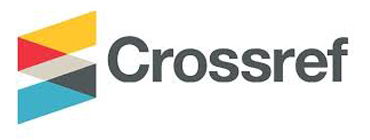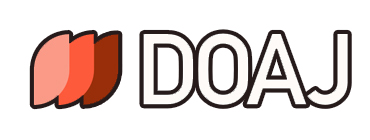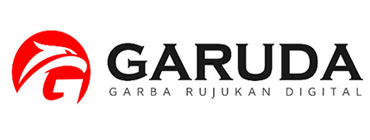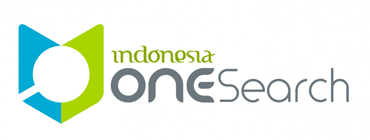Exploring The Influence of Implementing an Independent Curriculum and Learning Quality on Learning Effectiveness: Does the Mediation of School Infrastructure Matter?
Abstract
Full Text:
PDFReferences
Aini, Q., & Adiyono. (2023). Implementation of an Independent Curriculum in Supporting Students’ Freedom to Create and Learn. Journal of Scientific Research, Education, and Technology (JSRET), 2(3), https://doi.org/10.58526/jsret.v2i3.187
Ali, S., Bhutta, S. M., Ahmad, S., Ansari, A. N., Ahmed, A., & Qadir, Y. (2024). PROTOCOL: Effectiveness of public-private partnerships on educational access and quality of primary and secondary schooling in low- and middle-income countries: A systematic review. Campbell Systematic Reviews, 20(2), 1–13. https://doi.org/10.1002/cl2.1385
Apriliani, F. D., Widihastuti, Daryono, R. W., Jaya, D. J., & Rizbudiani, A. D. (2023). The Influence of Fashion Knowledge, Fashion Selection Factor, and Dress Etiquette on Dress Look. Jurnal Pendidikan Dan Pengajaran, 56(1), https://doi.org/10.23887/jpp.v56i1.53677
Brink, H. W., Lechner, S. C. M., Loomans, M. G. L. C., Mobach, M. P., & Kort, H. S. M. (2023). Understanding how indoor environmental classroom conditions influence academic performance in higher education. Facilities, 42(3/4), 185–200. https://doi.org/10.1108/F-12-2022-0164
Coman, C., Țîru, L. G., Meseșan-Schmitz, L., Stanciu, C., & Bularca, M. C. (2020). Online Teaching and Learning in Higher Education during the Coronavirus Pandemic: Students’ Perspective. Sustainability, 12(4), https://doi.org/10.3390/su122410367
Daryono, R. W., Hariyanto, V. L., Usman, H., & Sutarto, S. (2020). Factor analysis: Competency framework for measuring student achievements of architectural engineering education in Indonesia. REID (Research and Evaluation in Education), 6(2), https://doi.org/10.21831/reid.v6i2.32743
Daryono, R. W., Hidayat, N., Nurtanto, M., & Fu’adi, A. (2024). The development of a competency framework for architectural engineering graduates: Perspectives by the construction industry in Indonesia. Journal of Technology and Science Education, 14(2), https://doi.org/10.3926/jotse.1986
Daryono, R. W., Ramadhan, M. A., Kholifah, N., Isnantyo, F. D., & Nurtanto, M. (2023). An empirical study to evaluate the student competency of vocational education. International Journal of Evaluation and Research in Education (IJERE), 12(2), https://doi.org/10.11591/ijere.v12i2.22805
Destari, D., Saufi, M., Arijanti, S., Haddar, G. A., & Kasmilawati, I. (2023). The Implementation of School-Based Management in Supporting Standard of School Infrastructure and Facilities in Islamic Private School. Journal on Education, 5(3)
Erifal, E., Fitria, H., & Eddy, S. (2023). Implementation of the Independent Curriculum at SMA Negeri 1 Kayuagung. Journal of Social Work and Science Education, 4(3), Article 3. https://doi.org/10.52690/jswse.v4i3.556
Fabre, A., & Straub, S. (2023). The Impact of Public–Private Partnerships (PPPs) in Infrastructure, Health, and Education. Journal of Economic Literature, 61(2), 655–715. https://doi.org/10.1257/jel.20211607
Fauzan, A., Triyono, M. B., Hardiyanta, R. A. P., Daryono, R. W., & Arifah, S. (2023). The Effect of Internship and Work Motivation on Students’ Work Readiness in Vocational Education: PLS-SEM Approach. Journal of Innovation in Educational and Cultural Research, 4(1), Article 1. https://doi.org/10.46843/jiecr.v4i1.413
Hadi, M., Rosadi, P., & Lestari, Y. B. (2024). Teachers’ Reflective Practice in Implementing the Kurikulum Merdeka (Case Study at SMA Negeri 1 KURIPAN). International Journal of Multicultural and Multireligious Understanding, 11(3), https://doi.org/10.18415/ijmmu.v11i3.5531
Haleem, A., Javaid, M., Qadri, M. A., & Suman, R. (2022). Understanding the role of digital technologies in education: A review. Sustainable Operations and Computers, 3(5), 275–285. https://doi.org/10.1016/j.susoc.2022.05.004
Hariyanto, V. L., Daryono, R. W., Hidayat, N., Prayitno, S. H., & Nurtanto, M. (2022). A framework for measuring the level of achievement of vocational students’ competency of architecture education. Journal of Technology and Science Education, 12(1), https://doi.org/10.3926/jotse.1188
Istaryaningtyas, I., L, S., & E, H. (2021). Management of the Independent Learning Curriculum during the Covid-19 Pandemic. Journal of Education Research and Evaluation, 5(2), https://doi.org/10.23887/jere.v5i2.32998
Jiménez-Bucarey, C., Acevedo-Duque, Á., Müller-Pérez, S., Aguilar-Gallardo, L., Mora-Moscoso, M., & Vargas, E. C. (2021). Student’s Satisfaction of the Quality of Online Learning in Higher Education: An Empirical Study. Sustainability, 13(21), https://doi.org/10.3390/su132111960
Johnson, H., Fifolt, M., Knight, C., Wingate, M., Becker, D., & Preskitt, J. (2024). Promotion of school readiness in home visiting: Creating a key driver diagram for continuous quality improvement. Early Child Development and Care, 194(2), 183–194. https://doi.org/10.1080/03004430.2023.2285699
Kamrat, R., Wisedsang, P., & Pitprasert, U. (2022). Relationship between Total Quality Management and Effectiveness of the Schools under Surin Primary Educational Service Area Office 3. Journal of Graduate School, Pitchayatat, Ubon Ratchathani Rajabhat University, 17(1)
Khakimov, S. R., & Sharopov, B. K. (2023). Educational Quality Improvement Events Based on Exhibition Materials in Practical Training Lessons. American Journal of Language, Literacy and Learning in STEM Education (2993-2769), 1(2)
Kundu, A., & Bej, T. (2021). We have efficacy but lack infrastructure: Teachers’ views on online teaching learning during COVID-19. Quality Assurance in Education, 29(4), 344–372. https://doi.org/10.1108/QAE-05-2020-0058
Lassa, J., Petal, M., & Surjan, A. (2023). Understanding the impacts of floods on learning quality, school facilities, and educational recovery in Indonesia. Disasters, 47(2), 412–436. https://doi.org/10.1111/disa.12543
Lei, H., Chen, C., & Luo, L. (2024). The examination of the relationship between learning motivation and learning effectiveness: A mediation model of learning engagement. Humanities and Social Sciences Communications, 11(1), 1–11. https://doi.org/10.1057/s41599-024-02666-6
Lisdawati, L. (2024). Independent Curriculum Based Learning Management in Primary School Education Units. PPSDP International Journal of Education, 3(1), https://doi.org/10.59175/pijed.v3i1.182
Matitaputty, J. K., & Sopacua, J. (2023). The Effectiveness of the Learning Cycle 5E Learning Model in an Effort to Improve Learning Outcomes of History. JIM: Jurnal Ilmiah Mahasiswa Pendidikan Sejarah, 8(2),https://doi.org/10.24815/jimps.v8i2.24816
Mukhtasar, M., Begyor, S., Aleksandr, K., Farrukh, D., Isroil, U., Sodiqjon, K., & Akbarjon, A. (2022). Effectiveness Analysis of the Development of the German Education System in Our Country. Journal of New Century Innovations, 18(1)
Opabola, E. A., Galasso, C., Rossetto, T., Meilianda, E., Idris, Y., & Nurdin, S. (2023). Investing in disaster preparedness and effective recovery of school physical infrastructure. International Journal of Disaster Risk Reduction, 90(4), 10–36. https://doi.org/10.1016/j.ijdrr.2023.103623
Putra, K. A. J., Triyono, M. B., & Daryono, R. W. (2022). The Influence of Entrepreneurship Competency and Leadership Challenge to Principals’ Leadership Solutions. Jurnal Pendidikan Dan Pengajaran, 55(2) https://doi.org/10.23887/jpp.v55i2.43711
Rakhman, F., & Surur, M. (2024). Analysis of Constraints on the Implementation of the Independent Curriculum in PAUD Level Mobilizing Schools in Situbondo District. Didaktika: Jurnal Kependidikan, 13(1) https://doi.org/10.58230/27454312.405
Ramanan, B., & Mohamad, M. B. (2020). Validating a Model of Change Readiness among Malaysian School Teachers: A Structural Equation Modeling Approach. International Journal of Learning, Teaching and Educational Research, 19(2)
Rendoth, T., Duncan, J., Foggett, J., & Colyvas, K. (2024). Curriculum effectiveness for secondary-aged students with severe intellectual disabilities or profound and multiple learning difficulties in Australia: Teacher perspectives. Journal of Intellectual Disabilities, 17446295241228729. https://doi.org/10.1177/17446295241228729
Safrida, S., Tannady, H., Solissa, E. M., Sapulete, H., & Haddar, G. A. (2023). Strategic Leadership Analysis of School Principal to Improve Learning Quality. Jurnal Pendidikan Dan Kewirausahaan, 11(2), Article 2. https://doi.org/10.47668/pkwu.v11i2.741
Sanusi, I. T., Oyelere, S. S., & Omidiora, J. O. (2022). Exploring teachers’ preconceptions of teaching machine learning in high school: A preliminary insight from Africa. Computers and Education Open, 3(3), 10–23. https://doi.org/10.1016/j.caeo.2021.100072
Setyabudhi, A. L., & Veza, O. (2022). Analysis of the Effectiveness of the Implementation of Online Learning at the Beginning of the Covid-19 Pandemic. Technical and Vocational Education International Journal (TAVEIJ), 2(2)
She, B. (2024). Practical research and analysis of the path to improving the quality of higher education institutions in the context of information technology. Applied Mathematics and Nonlinear Sciences, 9(1), 21–36.
Sumadi, C. D., Hidayat, A., & Agustina, I. (2022). Literature Study: Analysis of Learning Facilities in the Pandemic Era on The Effectiveness of Online Learning in Elementary SchooL. Widyagogik : Jurnal Pendidikan dan Pembelajaran Sekolah Dasar, 9(2), Article 2. https://doi.org/10.21107/widyagogik.v9i2.13808
Supriyanto, S., Munadi, S., Daryono, R. W., Tuah, Y. A. E., Nurtanto, M., & Arifah, S. (2022). The Influence of Internship Experience and Work Motivation on Work Readiness in Vocational Students: PLS-SEM Analysis. Indonesian Journal on Learning and Advanced Education (IJOLAE), 5(1), https://doi.org/10.23917/ijolae.v5i1.20033
Suryati, L., Ambiyar, & Jalinus, N. (2023). Evaluation of the Implementation of the Independent Curriculum with a Technology-based Learning Model. Jurnal Penelitian Dan Pengembangan Pendidikan, 7(3), Article 3. https://doi.org/10.23887/jppp.v7i3.66635
Sutrisno, S., Hayati, H., Saputra, N., Arifin, S., & Kartiko, A. (2023). The Influence of The Head of Madrasah and Infrastructure Facilities on The Quality of Education Through Teacher Competence. Tafkir: Interdisciplinary Journal of Islamic Education, 4(2), https://doi.org/10.31538/tijie.v4i2.423
Umar, M., & Ko, I. (2022). E-Learning: Direct Effect of Student Learning Effectiveness and Engagement through Project-Based Learning, Team Cohesion, and Flipped Learning during the COVID-19 Pandemic. Sustainability, 14(3), https://doi.org/10.3390/su14031724
Wanti, L., & Chastanti, I. (2023). Analysis of preparation in the independent curriculum implementation: Case study on IPAS learning. BIO-INOVED : Jurnal Biologi-Inovasi Pendidikan, 5(2), https://doi.org/10.20527/bino.v5i2.15493
Widayanto, L. D., Soeharto, S., Sudira, P., Daryono, R. W., & Nurtanto, M. (2021). Implementation of the Education and Training Program seen from the CIPPO Perspective. Journal of Education Research and Evaluation, 5(4), https://doi.org/10.23887/jere.v5i4.36826
Widyastuti, P., Hadi, S., Daryono, R. W., & Samad, N. B. A. (2023). The Mediation Role of University Environment in the Relationship between Self-Efficacy and Family Environment on Entrepreneurial Education Interest: A PLS-SEM Approach. Indonesian Journal on Learning and Advanced Education (IJOLAE), 5(3), https://doi.org/10.23917/ijolae.v5i3.22015
Yan, Z., Na, M., Alam, S. S., Masukujjaman, M., & Lu, Y. X. (2022). Teacher Competencies and School Improvement Specialist Coaching (SISC+) Programme in Malaysia as a Model for Improvement of Quality Education in China. Sustainability, 14(23), https://doi.org/10.3390/su142316273
Yangambi, M. (2023). Impact of School Infrastructures on Students Learning and Performance: Case of Three Public Schools in a Developing Country. Creative Education, 14(4), https://doi.org/10.4236/ce.2023.144052
Yu, Z. (2022). Sustaining Student Roles, Digital Literacy, Learning Achievements, and Motivation in Online Learning Environments during the COVID-19 Pandemic. Sustainability, 14(8), Article 8. https://doi.org/10.3390/su14084388
Zaenab, Z., Samsudi, S., Hidayah, I., & Wahyudin, A. (2023). Implementation of the Independent Curriculum in Digital Literacy Training for Interactive Learning Media to Improve Pedagogic Competencies of Teachers in MTsN Gowa Regency. International Conference on Science, Education, and Technology, 9(5), 899–906.
Poon, W. C., Kunchamboo, V., & Koay, K. Y. (2024). E-Learning Engagement and Effectiveness during the COVID-19 Pandemic: The Interaction Model. International Journal of Human–Computer Interaction, 40(2), 393–408.
Wang, M. J., Yang, L. Z., & Yang, W. H. (2024). The Perceived Effectiveness of the Blended Team-based Learning (BTBL) Model on Promoting Intercultural Awareness in Hospitality Education. Journal of Hospitality & Tourism Education, 36(1), 25–35.
Abdullah, N. L., Ramdan, M. R., Ngah, N. S., Yin, K. Y., Shokory, S. M., Fuad, D. R. S. M., & Yonus, A. (2024). An Integrated Framework of Online Learning Effectiveness in Institutions of Higher Learning. European Journal of Educational Research, volume-13-2024(volume-13-issue-3-july-2024), 1321–1333.
Demirdag, M. C., Kucuk, S., & Tasgin, A. (2024). An Investigation of the Effectiveness of Augmented Reality Technology Supported English Language Learning Activities on Preschool Children. International Journal of Human–Computer Interaction.
Amenah Kareem, H., Ashoor, I. A., & Majed, S. S. (2024). The Effectiveness of a Differentiated Learning Strategy using Flexible Groups to Improve Football Skills and Keep It. International Journal of Disabilities Sports and Health Sciences, 7(1), 236–244.
DOI: http://dx.doi.org/10.30829/tar.v31i1.3466
Refbacks
- There are currently no refbacks.

Jurnal Tarbiyah by UIN Sumatera Utara Medan is licensed under a Creative Commons Attribution-NonCommercial-ShareAlike 4.0 International License.
Based on a work at http://jurnaltarbiyah.uinsu.ac.id/index.php/tarbiyah.
Permissions beyond the scope of this license may be available at http://jurnaltarbiyah.uinsu.ac.id/index.php/tarbiyah/about/submissions#copyrightNotice.
















